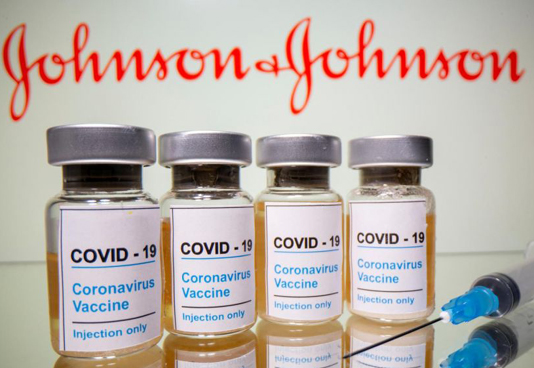WASHINGTON, Feb 27, 2021 (BSS/AFP) – A US panel of independent experts
voted unanimously Friday in favor of recommending Johnson & Johnson’s one-
dose Covid-19 shot for emergency approval, clearing the way for a third
vaccine to soon begin shipping in the world’s hardest hit country.
The committee’s 22 members were convened by the Food and Drug
Administration and included leading scientists as well as consumer and
industry representatives.
Although their recommendations aren’t binding, they are usually followed.
An emergency use authorization (EUA) will likely follow, probably in the
coming days, making the J&J vaccine the third to be greenlighted in the
United States after Pfizer’s and Moderna’s were provisionally approved in
December.
“We’ve all seen the news about (the) Johnson and Johnson vaccine today —
(the) third, safe effective vaccine,” President Joe Biden said from Houston
shortly after the vote.
“We’re going to use every conceivable way to expand manufacturing of the
vaccine… and make even more rapid progress in getting (shots) to people’s
arms.”
Administration officials said this week they hoped to deliver three to
four million doses next week.
The recommendation followed a day-long, live-streamed virtual meeting to
decide if the known benefits of the drug outweigh its known risks for use in
people aged 18 and over — which gave the public an inside look at the
details of the scientific debate.
“Janssen’s vaccine candidate will play a critical role in the global
efforts to fight Covid-19,” Johan Van Hoof, global head of vaccines research
and development at J&J’s Janssen subsidiary, had told the meeting,
emphasizing the shot’s high efficacy against severe Covid-19, including
against new variants.
He also stressed the fact that it was proven to work with a single shot,
and could be stored long term at fridge temperatures, which “offers
logistical and practical advantages.”
– Placebo crossover –
In a global trial of almost 40,000 people, the vaccine’s efficacy against
severe disease was 85.4 percent, but it fell to 66.1 percent when including
moderate forms of the disease.
This makes it slightly less protective than Pfizer and Moderna’s two-shot
regimens, which both have an efficacy of around 95 percent against
symptomatic Covid-19.
Nevertheless, experts say J&J’s shot will bring to bear a powerful new
weapon against the outbreak in the United States, where more than 500,000
people have died.
Van Hoof said that if authorized, J&J would apply to amend their trials so
that people who received the placebo could now receive the vaccine.
The idea is to compare relative efficacy between people who were
vaccinated earlier against later, to see if immunity wanes over time.
The company is also planning to soon begin testing its vaccine on
children.
It is separately studying whether two doses might be more protective than
one — which raised concerns among some panelists who felt people who got one
dose might feel short-changed if two doses ends up proving more effective.
– Anaphylaxis case –
During J&J’s presentation, company scientist Macaya Douoguih revealed that
a case of anaphylaxis occurred in a health worker in South Africa — the
first time this has happened for the shot.
Some rare anaphylaxis cases have been reported for the Pfizer and Moderna
shots.
In almost 44,000 people studied for safety issues, the vaccine was well
tolerated, with typical side-effects like injection-site pain, headache,
fatigue and muscle pains.
There were a handful of cases of people who developed hives, which could
have been linked to the shot.
The FDA also said long-term monitoring was needed to determine whether the
vaccine was linked to a small number of cases of potentially dangerous
clotting, and to tinnitus (ear ringing).
Seven people died from Covid-19 in the placebo group, and none in the
vaccine group.
There was a hint, based on preliminary data, that the vaccine might be
partly effective against asymptomatic infection.
The company has announced it aims to deliver a total of 20 million doses
to the United States by the end of March, with 100 million by June — though
the US is pushing to expedite that timeline.
The J&J vaccine uses a common-cold causing adenovirus, which has been
genetically modified so that it can’t replicate, to carry the gene for a key
protein of the coronavirus into human cells.
Those cells then produce that protein, which in turn trains the human
immune system should it encounter the real virus.



